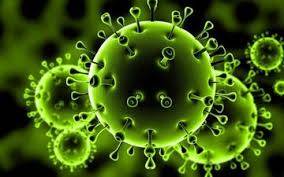Research on mutations in different types of covid virus
The COVID-19 pandemic has introduced many new words into our everyday lives. Beyond N-95 and quarantine, new terms like Delta variant are now commonplace. But what is a variant? How are variants identified? And why is it important to track them
Scientists at Children’s Hospital Los Angeles have been paying close attention to the behavior of SARS-CoV-2, since the beginning of the pandemic. This means reading out the genetic sequence of the virus from every COVID-19-positive sample to identify mutations. But this also means alerting authorities to notable changes in the virus. Recently, in fact, their research has uncovered mutations recognized by the global scientific community, mutations that may explain why certain versions of the virus—like the Delta variant—are so much more contagious. “Genomic surveillance is critical,” says Xiaowu Gai, PhD, Director of Bioinformatics in the Center for Personalized Medicine at Children’s Hospital Los Angeles. “This is the only tool we have to identify mutations. We can track these mutations to help guide public health measures.” This tracking has been critical throughout the pandemic. “Sequencing the genome of SARS-CoV-2 allowed for development of the vaccine,” adds Dr. Gai. “Now it remains just as important given the evolving virus and all its variants
What is a variant
When a virus infects someone, it replicates, making many copies of itself. Inevitably, mistakes called mutations are made in that process. Sometimes, these mutations make it easier for the virus to be spread or infect cells. When this happens, the new version of the virus—or variant—will become more common in the population. The more a virus spreads from person to person, the more chances it has to mutate and for new variants to develop. SARS-CoV-2 has infected more than 200 million individuals worldwide, giving it ample chance to mutate. According to experts, SARS-CoV-2, the virus that causes COVID-19, mutates every couple of weeks. At Children’s Hospital Los Angeles, scientists in the Department of Pathology & Laboratory Medicine and the Center for Personalized Medicine have been tracking these mutations since the beginning of the pandemic in order to identify variants and anticipate the emergence of “variants of concern,” which can potentially be more contagious or cause more severe disease
A virus family tree
Over time, a variant will develop new mutations of its own, leading to multiple sub-lineages, much like a family tree. But not all mutations are cause for concern. In fact, many of them are inconsequential, much like how dropping one letter from a word still leaves a sentence that can be read. In some cases, mutations may even cause the virus to become weaker and die off. But in others—such as the current Delta variant—these changes can help a virus spread. The Centers for Disease Control and Prevention (CDC) reports that the Delta variant is twice as contagious as previous strains. This means that people exposed to the Delta variant are more likely to be infected, and that over time the Delta variant out-competes other variants to become dominant. Today more than 90% of new COVID-19 cases are caused by the Delta variant. Our understanding and awareness of variants depends on scientists tracking the mutations using a technology called sequencing. With specialized high-throughput machines, scientists can read the entire genetic sequence, sometimes called the genome, of SARS-CoV-2. Then, samples can be compared to determine where mutations have arisen. This allows public health officials to be aware of the presence of different variants and the emergence of new more contagious strains of SARS-CoV-2
 sepanta salamat
sepanta salamat
